CONVERSATIONS ACROSS OUR AMERICA
JOE R. AND TERESA LOZANO LONG SERIES
IN LATIN AMERICAN AND LATINO ART AND CULTURE
LOUIS G. MENDOZA
CONVERSATIONS ACROSS OUR AMERICA
TALKING ABOUT IMMIGRATION AND THE LATINOIZATION OF THE UNITED STATES
University of Texas Press  Austin
Austin
Copyright 2012 by the University of Texas Press
All rights reserved
Printed in the United States of America
First edition, 2012
Requests for permission to reproduce material from this work should be sent to:
Permissions
University of Texas Press
P.O. Box 7819
Austin, TX 78713-7819
www.utexas.edu/utpress/about/bpermission.html
ISBN 978-0-292-74280-2 (individual e-book)
LIBRARY OF CONGRESS CATALOGING-IN-PUBLICATION DATA
Mendoza, Louis Gerard, 1960
Conversations across our America : talking about immigration and the Latinoization of the United States / by Louis G. Mendoza.
p. cm. (Joe R. and Teresa Lozano Long series in Latin American and Latino art and culture)
Includes bibliographical references and index.
ISBN 978-0-292-73738-9 (cloth : alk. paper) ISBN 978-0-292-73883-6 (pbk. : alk. paper) ISBN 978-0-292-73739-6 (e-book)
1. Hispanic AmericansInterviews. 2. Hispanic AmericansSocial conditions. 3. ImmigrantsUnited StatesInterviews. 4. ImmigrantsUnited StatesSocial conditions. 5. United StatesEmigration and immigrationSocial aspects. 6. United StatesCivilizationHispanic influences. I. Title.
E184.S75M453 2012
973'.0468dc23
2011048138
This book is dedicated to my loving parents, Joe and Mary Mendoza, for their lifetime of faith in me and to the spirit of my friend and teacher, ralrsalinas, for his inspiration and modeling of what it means to undertake a transformative journey and the value of sharing that story with others.
LISTENING IS A MAGNETIC AND STRANGE THING, A CREATIVE FORCE. THE FRIENDS WHO LISTEN TO US ARE THE ONES WE MOVE TOWARD. WHEN WE ARE LISTENED TO, IT CREATES US, MAKES US UNFOLD AND EXPAND.
Karl Menninger
CONTENTS
ACKNOWLEDGMENTS
This project would not have been possible without the benefit and the luxury of the University of Minnesotas faculty sabbatical program. Additional assistance was received from the College of Liberal Arts under the leadership of Dean Steven Rosenstone; the Office for Equity and Diversity under the leadership of Vice President and Vice Provost Rusty Barcel; Edn Torres, Chair of the Department of Chicano Studies; and a McKnight Foundation Summer Research Grant.
Edna Day, Lisa Sass-Zaragoza, Miguel Vargas, and Jennifer Nevitt, staff members in the Department of Chicano Studies, provided much-needed logistical support along the way. My beloved parents, Joe and Mary Mendoza, and siblings, Rosemary, Mary Ann, Robert, Beatrice, Margie, Cynthia, and Gilda, as well as their spouses and my nieces and nephews, provided support, encouragement, and faith in me. Many of my dear friends provided me with lodging and/or emotional nourishment along the way. Among these are Marianne Bueno; Ben Olgun; Sandy Soto; Miranda Joseph; Sherry Edwards; Jennifer Caron; Emiliano Compean; Omar Valerio and Cathy Komisaruk; Yolanda Chvez Leyva; Vernica Carbajal; Ralph Rodriguez; Luis Marentes and Negar Taradji and their children, Kasra and Katayoun; Sheila Contereas and Salah Hassan and their daughters, Paz and Noor; Rita Alcal and Ral Villa and their son, Joseph; Tamara Belknap; Kisa Takesue; Ralph Rodriguez; Brent Beltran; Consuelo Manriquez; Antonio Daz and Beth Ching and their son, Antonito; Cristal Casares; Kelly OBrien; and George OBrien.
With more than eighty-five hours of audio to transcribe, resulting in nine hundred pages of text, this work would not have been possible without the assistance of many people, including Sarah Beck-Esmay, Rachel Jennings, Kamala Platt, Terrell Webb, Dora Chalmers, Rene Valdez, Irene Lara Silva, and especially Steven Renderos, who tackled and beautifully captured the nuances of some of the most difficult interviews containing Tex-Mex code switching. I also received invaluable assistance from a number of friends who took the time to help me evaluate which interviews were richest and most insightful. For their time and insights, I would like to thank Anglica Afanador Pujol, Marianne Bueno, Rachel Jennings, Ben V. Olgun, Kamala Platt, Omar Valerio Jimenez, and Sandy Soto.
This project has continued to live in numerous ways, including the opportunity to share my experiences and the words of those I met along the way. A special thanks to the many people and places that hosted me upon my return and have provided me numerous opportunities to speak about this project at academic conferences, universities, K-12 schools, and community settings.
At the University of Texas Press, Theresa May, editor in chief, and her staff deserve a special thanks for their skillful guidance in preparing the manuscript for publication. A special thanks to Professor Roberto Calderon for his extraordinarily helpful suggestions for improving the manuscript.
Finally, it must be said that above all other types of support, this project absolutely depended on the willingness of strangers to meet with me and trust me with their stories. I am deeply indebted to those whose voices are included here, as well as those whose interviews I could not include due to space limitations. They ensured that my experience conducting research in this manner was not only successful but also life altering. Likewise, there were many, many people who reached out to provide friendship and words of support along the way via the Internet, at rest stops, in stores, or on the road. Among these were strangers who helped me when I needed a ride or assistance or simply provided acts of kindness to remind me of my connection to others through our common humanity.
To all those listed here by name and the many out there who believe in a vision of the United States that is enriched by our multicultural, multilingual, and multinational heritage, I offer my gratitude for working to make this vision a reality.
CONVERSATIONS ACROSS OUR AMERICA
INTRODUCTION
THE LATINOIZATION OF THE U.S. AND OUR NATIONAL CULTURE
In the spring of 2006, the U.S. experienced a series of unprecedented immigrant rights marches involving hundreds of thousands of people across the country as they sought to shift the rising tide of anti-immigrant discourse in the media and among the public at large. In recent years, anti-immigrant sentiments, particularly those aimed at undocumented workers and families, have given rise to hundreds of local ordinances prohibiting access to housing, education, and jobs. Amid this climate, efforts to reform outdated immigration policies stalled at the federal level as the country became polarized by competing perspectives on the benefits and liabilities of immigrant workers to the U.S. economy and culture.
That fall, I began developing plans for a year-long research sabbatical. Like many Chicana/o scholars, I want my research to be relevant to events affecting our community. Having moved to Minnesota in the summer of 2004, as one of only a handful of Chicana/o scholars on campus, I found myself constantly having to speak about migration and immigration to my students and the greater Minnesota community, which was experiencing a rapid influx of Latino immigrants. Though I came of age politically as an undergraduate student in Houston during the 1986 immigration reform era, living in Minnesota, one of the nations exemplars of the new geography of Latino immigration, was eye-opening. My position at the university provided me with a unique opportunity to be a resource of information and facilitator of peoples understanding of this emerging population. As I forged alliances and friendships with new immigrants and engaged with a broader public concerned about the impact of immigration on the states well-being, I gained new insight and appreciation for the complexities and harsh realities that influenced immigrants decisions to leave home and risk life in
Next page

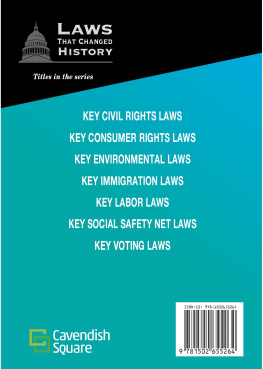
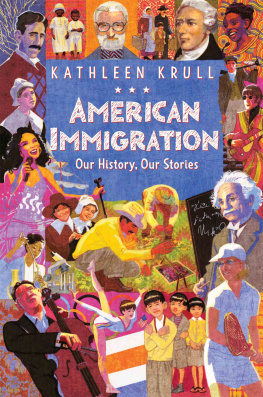
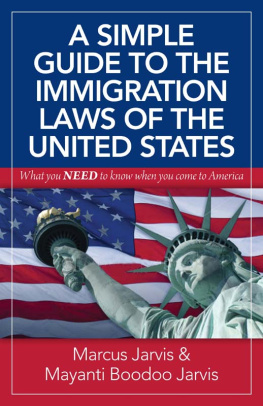
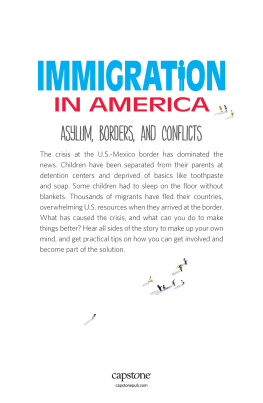
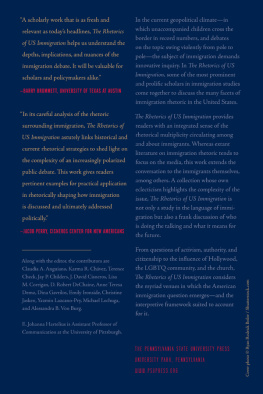

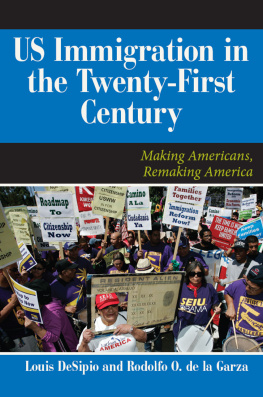
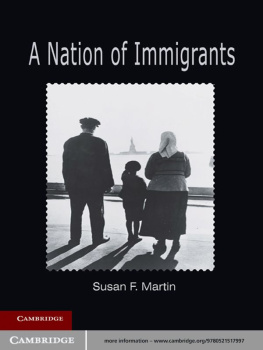
 Austin
Austin